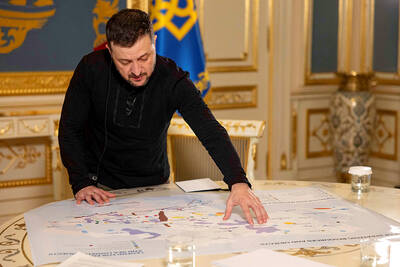Police detained the wife and two grown children of a former coast guard officer who died mysteriously in jail amid a dictatorship-era human rights trial, hours after an autopsy found cyanide in his blood, a judge said on Friday.
Hector Febres, 66, was accused of kidnapping and torturing dissidents during Argentina's past military dictatorship. He was found dead in his cell at a navy brig on Monday, four days before an expected verdict in his high-profile case.
Official reports initially suggested Febres had died of natural causes, but the autopsy results released in the middle of last week revealed a large quantity of cyanide in his bloodstream -- alarming human rights activists who feared he may have been poisoned to silence his testimony and prompting the court to swiftly open an investigation.
Federal Judge Sandra Arroyo Salgado said she had ordered Febres' three family members and two officers in charge of the navy brig detained in a sweep of raids that brought computer equipment, files and other materials in from their homes.
The judge's office did not give a reason for the pre-dawn detentions on Friday. Investigators said they had not yet determined if Febres had poisoned himself.
Febres, who was facing life in prison on charges related to the disappearance and torture of four people during the dictatorship's "Dirty War" crackdown on dissent, was the first suspect tried for abuse at the notorious Navy Mechanics' School, the largest prison camp of Argentina's 1976 to 1983 junta.
During his trial, Argentine prosecutors characterized him as a particularly fierce torturer. His defense team insisted that he was innocent.
Jailers found Febres dead in his cell before breakfast on Monday.
About 13,000 people were killed or made to "disappear" by security forces during the country's seven-year junta, according to official figures. Human rights groups say the number is closer to 30,000.
About 4,500 prisoners passed through the Navy Mechanics School, and many were never seen again.
The military recently abandoned the site, which is being converted into a museum and memorial to Dirty War victims.
Argentine President Cristina Fernandez, who was sworn in on Monday, has promised to bring dozens of slow-moving human rights cases to conclusion.
Human rights activists called on Friday for a clarification of whether Febres had poisoned himself or others had, expressing fear that some may have sought to silence him because he knew of abuses at the Navy Mechanics' School.
Febres died before his last chance to testify in his defense on Friday.
"It's very suspicious," activist Emilio Persico said. "Febres was to have had his chance today to speak out in court. We were desperate to know what he was going to say. He knew a lot."
Martin Orozco, a defense lawyer for Febres' relatives, said the man's wife, daughter and son were being held at separate detention centers and barred from contacting lawyers. He later said a judge was investigating how Febres died.
"I'm surprised by these developments," he said.

Thousands gathered across New Zealand yesterday to celebrate the signing of the country’s founding document and some called for an end to government policies that critics say erode the rights promised to the indigenous Maori population. As the sun rose on the dawn service at Waitangi where the Treaty of Waitangi was first signed between the British Crown and Maori chiefs in 1840, some community leaders called on the government to honor promises made 185 years ago. The call was repeated at peaceful rallies that drew several hundred people later in the day. “This government is attacking tangata whenua [indigenous people] on all

RIGHTS FEARS: A protester said Beijing would use the embassy to catch and send Hong Kongers to China, while a lawmaker said Chinese agents had threatened Britons Hundreds of demonstrators on Saturday protested at a site earmarked for Beijing’s controversial new embassy in London over human rights and security concerns. The new embassy — if approved by the British government — would be the “biggest Chinese embassy in Europe,” one lawmaker said earlier. Protester Iona Boswell, a 40-year-old social worker, said there was “no need for a mega embassy here” and that she believed it would be used to facilitate the “harassment of dissidents.” China has for several years been trying to relocate its embassy, currently in the British capital’s upmarket Marylebone district, to the sprawling historic site in the

‘IMPOSSIBLE’: The authors of the study, which was published in an environment journal, said that the findings appeared grim, but that honesty is necessary for change Holding long-term global warming to 2°C — the fallback target of the Paris climate accord — is now “impossible,” according to a new analysis published by leading scientists. Led by renowned climatologist James Hansen, the paper appears in the journal Environment: Science and Policy for Sustainable Development and concludes that Earth’s climate is more sensitive to rising greenhouse gas emissions than previously thought. Compounding the crisis, Hansen and colleagues argued, is a recent decline in sunlight-blocking aerosol pollution from the shipping industry, which had been mitigating some of the warming. An ambitious climate change scenario outlined by the UN’s climate

BACK TO BATTLE: North Korean soldiers have returned to the front lines in Russia’s Kursk region after earlier reports that Moscow had withdrawn them following heavy losses Ukrainian President Volodymyr Zelenskiy on Friday pored over a once-classified map of vast deposits of rare earths and other critical minerals as part of a push to appeal to US President Donald Trump’s penchant for a deal. The US president, whose administration is pressing for a rapid end to Ukraine’s war with Russia, on Monday said he wanted Ukraine to supply the US with rare earths and other minerals in return for financially supporting its war effort. “If we are talking about a deal, then let’s do a deal, we are only for it,” Zelenskiy said, emphasizing Ukraine’s need for security guarantees